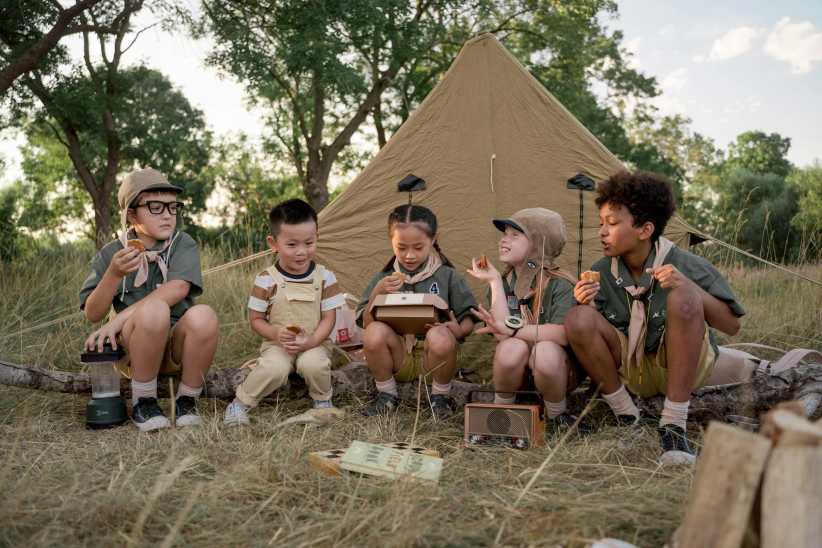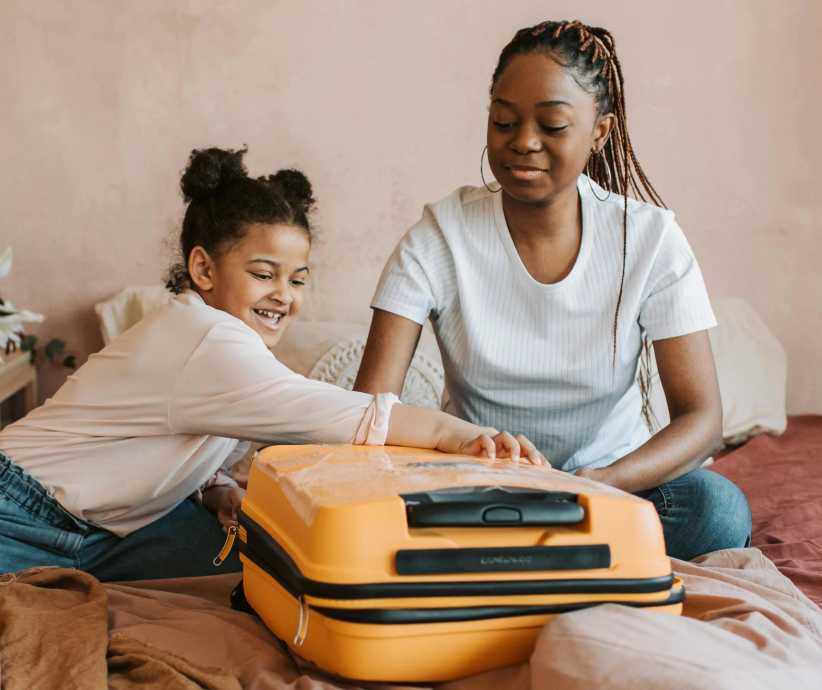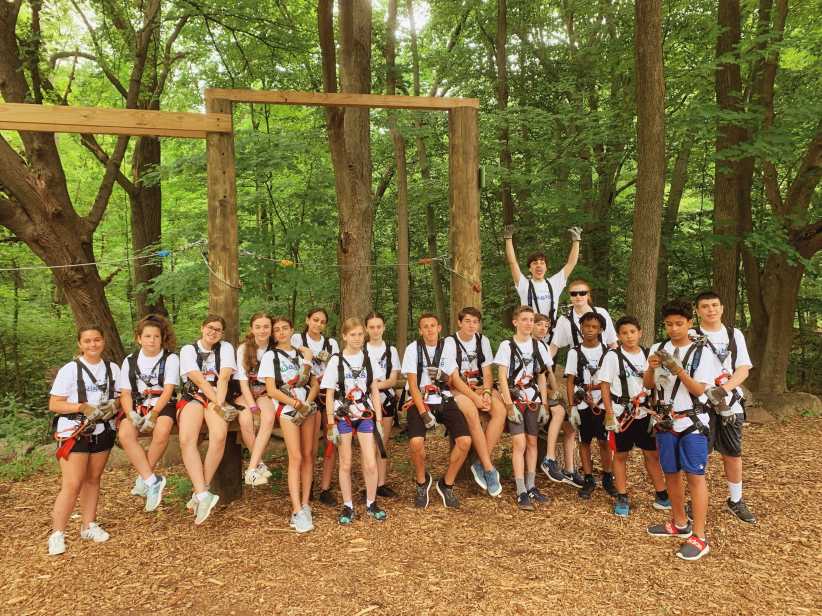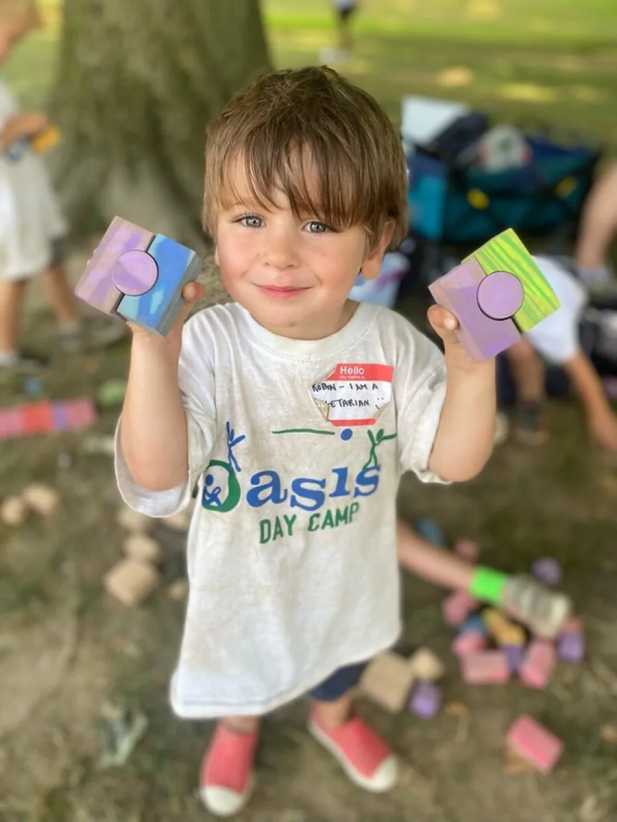
When choosing a sleepaway camp for the first time, many parents contemplate whether or not they should send their child to camp with a friend. While going to camp with a friend works for many campers, it can backfire as well, complicating both the camp experience and the friendship. Parents should keep the following ideas and scenarios in mind when weighing the decision.
As parents search for the perfect camp for their child, many of their friends and family are likely to be strong advocates for the camps their children attend and will be eager to share information. This can be a great way to gather information—but the American Camp Association, NY and NJ (ACA), cautions against choosing a camp solely based on where a child’s friends or cousins go. Parents need to do their own research. While a friend’s camp may be a great fit for that family, it may not be good for yours. Even if your children are similar in some important ways, you may conclude that the camp isn’t quite right for your child.
Parents also should make sure the camp’s philosophy complements their own parenting style. In broad strokes, some parents look for a camp that develops self-esteem through team sports and healthy rivalry, while others look for cooperative group learning and non-competitive activities. Keeping this in mind, we gathered some additional reasons for going to camp alone, followed by equally good reasons for attending with a friend. The scenario that seems to work best for your child can help inform this important decision when it comes to summer camp.
Worried your child won’t make friends at camp if he or she doesn’t go with a friend? You really needn’t be. Camp is a community where children tend to bond quickly by sharing in the activities and traditions of the camp. Moreover, the staff at any well-run camp is adept at helping kids find their comfort zones and establish friendships with other children. In research by the ACA, 96 percent of campers say that camp helped them make new friends and 69 percent of parents say their child remains in contact with those friends.
That being said, many camps ensure that children who are going alone for the first time will not be alone. Even before camp begins, many camps host a pre-camp event for first-time campers, which is a good way for children to meet other campers and can relieve any worry they may have about going to camp by themselves. “We sent our daughter to a camp where she knew of children that went there, but she didn’t go with a friend,” says Rebecca Tayne, a Manhattan parent. “The camp does a lot to help campers make new friends. They hosted a new-camper orientation a month before camp where she met a lot of girls and she was able to request they be in the same bunk. They also do bunk bonding activities in the first few days and make sure to cluster new campers together in the bunks, along with some returning campers.” Keep in mind that if a camp doesn’t offer these types of events, your child will still make friends easily beginning with the bus ride to camp.
[gravityform id=”17″ title=”false” description=”false” ajax=”true”]
Going to camp is a wonderful growth experience for all children, but for those who go without a pal specifically, it lets them know that they can meet new friends and be independent.
Tayne adds: “My husband and I felt that we didn’t want to saddle [our daughter] with pre-existing dynamics before she even got there. Having a friend could hamper her ability to branch out and make new friends. It could enforce ideas about her that she might want to put aside. Basically, we liked the idea of her having a clean slate—and she liked it too.”
Exactly. Camp is a place where children can reinvent themselves. Your child has gone to school with the same children for years and may be thought of at home as the athletic child or the shy child. At camp, your child can be whomever he or she chooses to be, which is harder to do when your child is at camp with a friend who knows the roles from home.
Lori Hertz, a mother-of-two from Long Island, sent her sons to two different camps. Her oldest son is independent and went to camp without a friend, but her younger son wanted to go to camp with his cousin. Right before camp started, however, the cousin decided not to go, and her son had to decide whether or not to go alone. “I said to my son that if he wants to go to camp, he should go and not let the fact that his cousin isn’t going ruin his summer,” Hertz says. “He ended up going and having a great summer. The following summer, his cousin went to camp with him and my son didn’t spread his wings as much and make as many new friends as the summer before because he had his cousin as a crutch.”
So keep in mind that if your child goes to camp with a friend who has already been to that camp, the friend may already have a separate group of friends there that your child might not immediately join—which can be good or bad depending upon the circumstances.

Manhattan parents Mark Thaler and Sharon Sommers sent their children to camp without friends, and believe that the experience allowed their son to develop crucial relationships that allowed for positive growth. “We generally think that going to camp without school friends is a positive social challenge that, if overcome,allows kids to expand their horizons and explore identities outside of school,” they wrote in an email. “Our son Sam went to camp at 9 without knowing any boys his age. He is now 15 and his camp friends are his closest relationships. He can’t really explain why, he just knows that something special happens at camp.”
But there are also plenty of compelling reasons to send your kid to camp with a buddy. Sending your child to camp with a friend could bolster their comfort and their confidence. They’ll feel like they have a friend to count on from the very beginning of camp.
“Camp is an amazing experience where children create new lifelong friendships, develop confidence and independence, and have the opportunity to spread their wings and be whoever they want to be,” says Paul Schorey, director of Chestnut Lake, a co-ed sleepaway camp in Beach Lake, PA. “In order for children to take full advantage of these experiences, it’s easy to suggest that campers attend a camp without friends from home. However, a child going away to camp for the first time is taking a major step. Oftentimes, attending camp with a friend from home provides the necessary comfort and confidence for a child to go to camp in the first place.” Just keep in mind that you also run the risk of having two home friends who drift apart at camp.
For Lyss Stern, a Manhattan mother-of-three, sending her son Jax to camp for the first time at age 11 with his best friend Dylan, a returning camper, provided both her and her son with peace of mind—though she was aware of the risks to the boys’ relationship outside of camp.
“I think for him, knowing that his best friend was there was something that was very helpful in making up his mind,” Stern says. “In my experience, the biggest pro for sending my son to camp with his BFF was the security: Knowing that he was safe and that he was going to have the most wonderful camp experience.” Before sending Jax to camp, Stern made sure to speak with both him and Dylan about transferring the dynamic of their friendship to the camp setting.
“We made it very clear to both boys—especially my son—that he needed to give his best friend space. He also needed to make new friends. They would always be best friends, but my son needed to give his best friend space,” Stern explains. “In spite of any differences they had at camp, they are still best of friends… They talk about Camp Greylock all the time and look forward to making many more magical memories together.”
Shari Misher Stenzler, also a Manhattan parent, sent her children to sleepaway camp specifically with family friends, rather than schoolmates, in order to provide comfort, but not restrict their social exploration.
“I thought it was a great idea to go with a friend with they know, preferably a family friend they know and are comfortable with but don’t go to school with,” Stenzler says. “A lot of what’s fun about camp is the fun of meeting people…[but] going with a family friend allows you to feel like you have someone familiar when you go away from home for the first time.”
If your child wants to go to camp with a friend or you feel more comfortable sending your child with someone, have a conversation with the camp director and let him or her know that these children are friends from home. Andy Lilientha, owner and director of Camp Winnebago, a boys’ sleepaway camp in Fayette, ME, cautions: “Parents should be prepared for them to be in different cabins and possibly assigned to different groups. Usually, there is ample time for friends to see each other during the course of the day, and being placed in different groups allows campers the opportunity to establish a broader network of friends rather than encourage children to naturally cling to what is familiar and more comforting—and perhaps not as beneficial.”
Adam Baker, owner and director of Camps Equinunk and Blue Ridge, brother-sister sleepaway camps in Equinunk, PA, takes a similarly balanced approach. “A camper’s experience at sleepaway camp is defined by a collection of experiences that foster the development of their character, morality, and independence—almost all of which happen through the relationships they develop,” he says. “Much of this growth occurs in new situations with new friends. While attending sleepaway camp with a close friend from home creates a comfort, attending with a few friends may dilute the very experiences we hope for our children to have. If attending camp for the first summer with a friend, we share our insight on this with parents, and with their understanding that we will often place the children in separate bunks.”
Whether your child goes to camp with a friend or goes alone, camp is a wonderful way for him or her to form new, long-lasting friendships and to become part of a caring community. And, in many cases, camp friendships—whether they began on campgrounds or began at home—will last well beyond the final days of summer.























